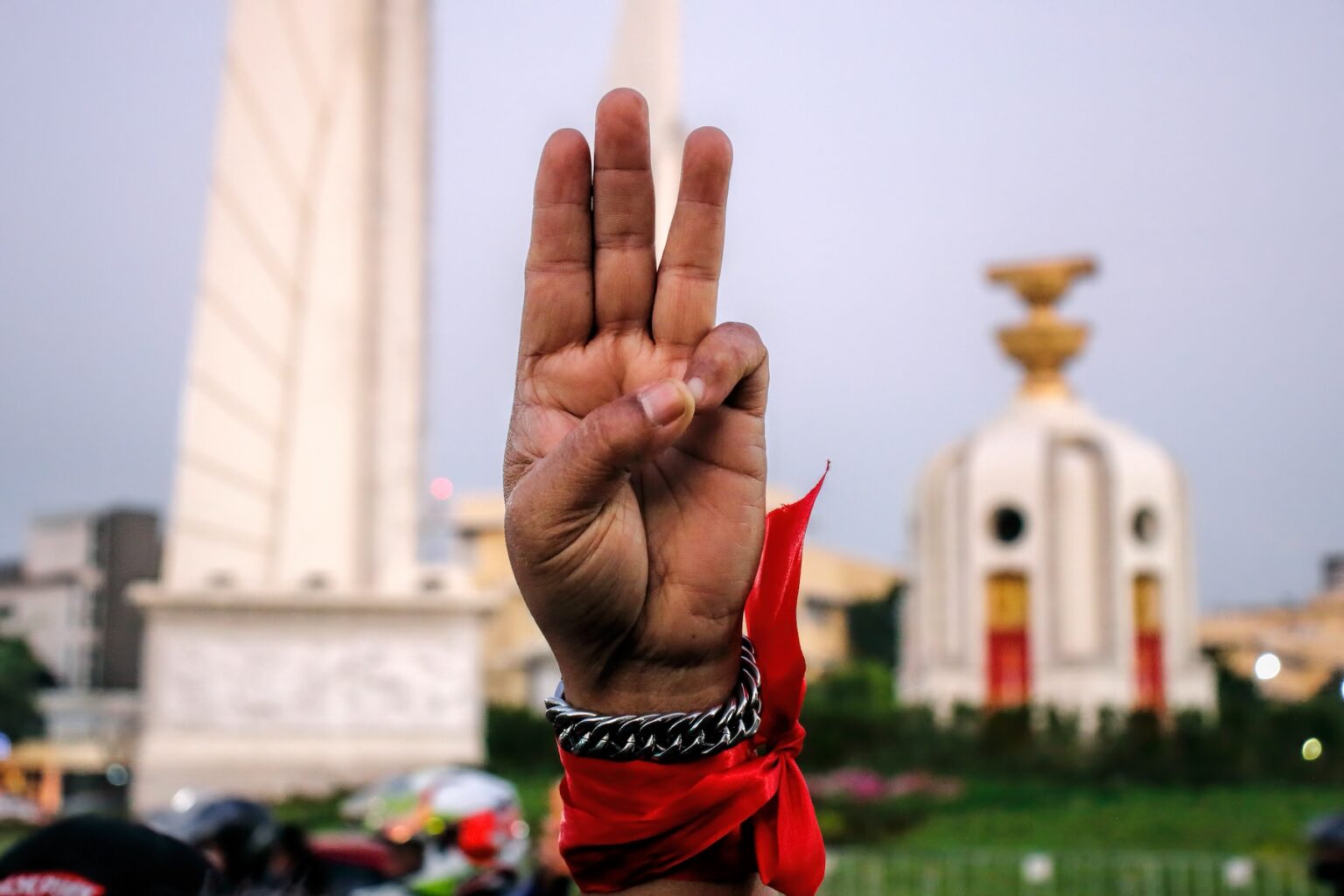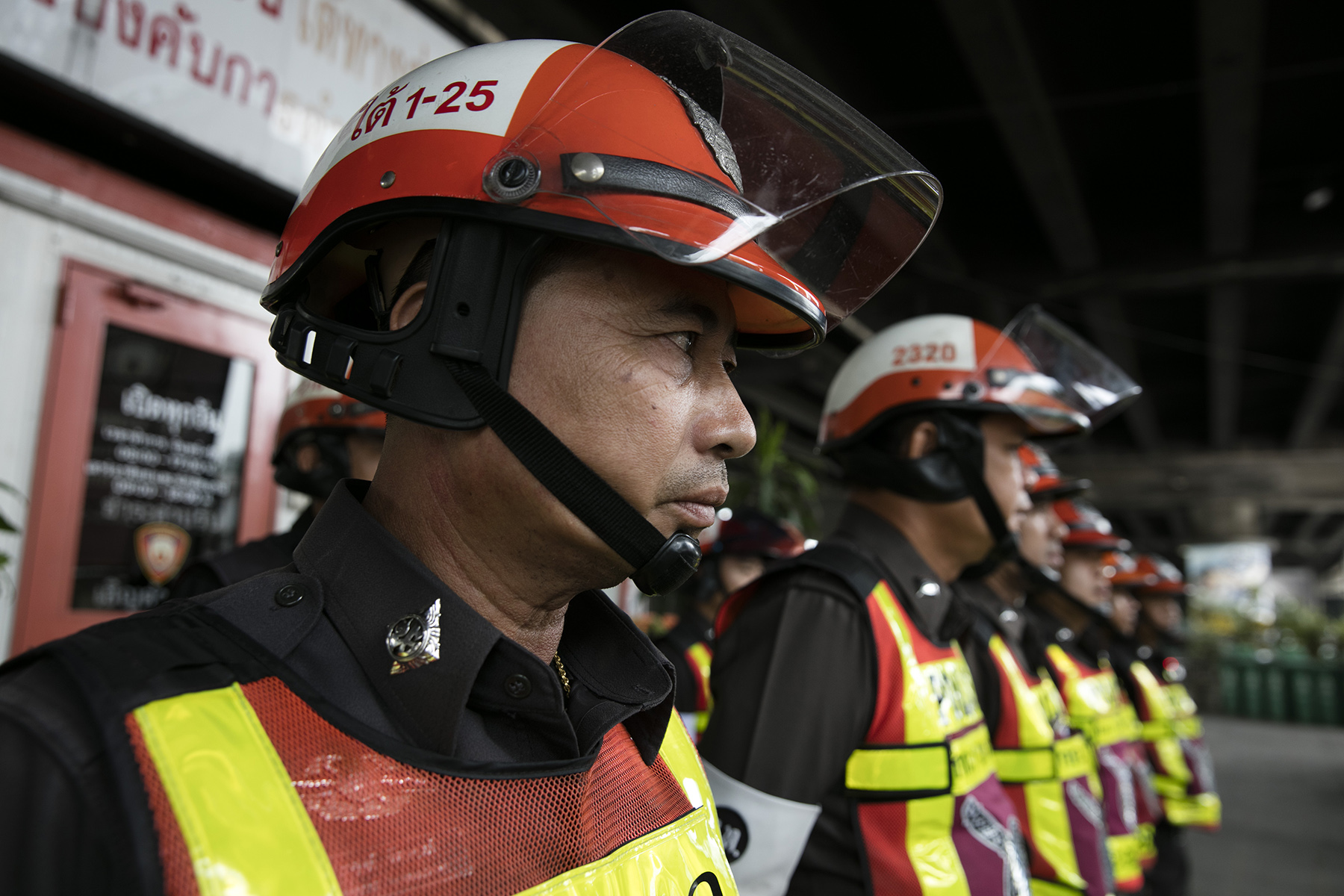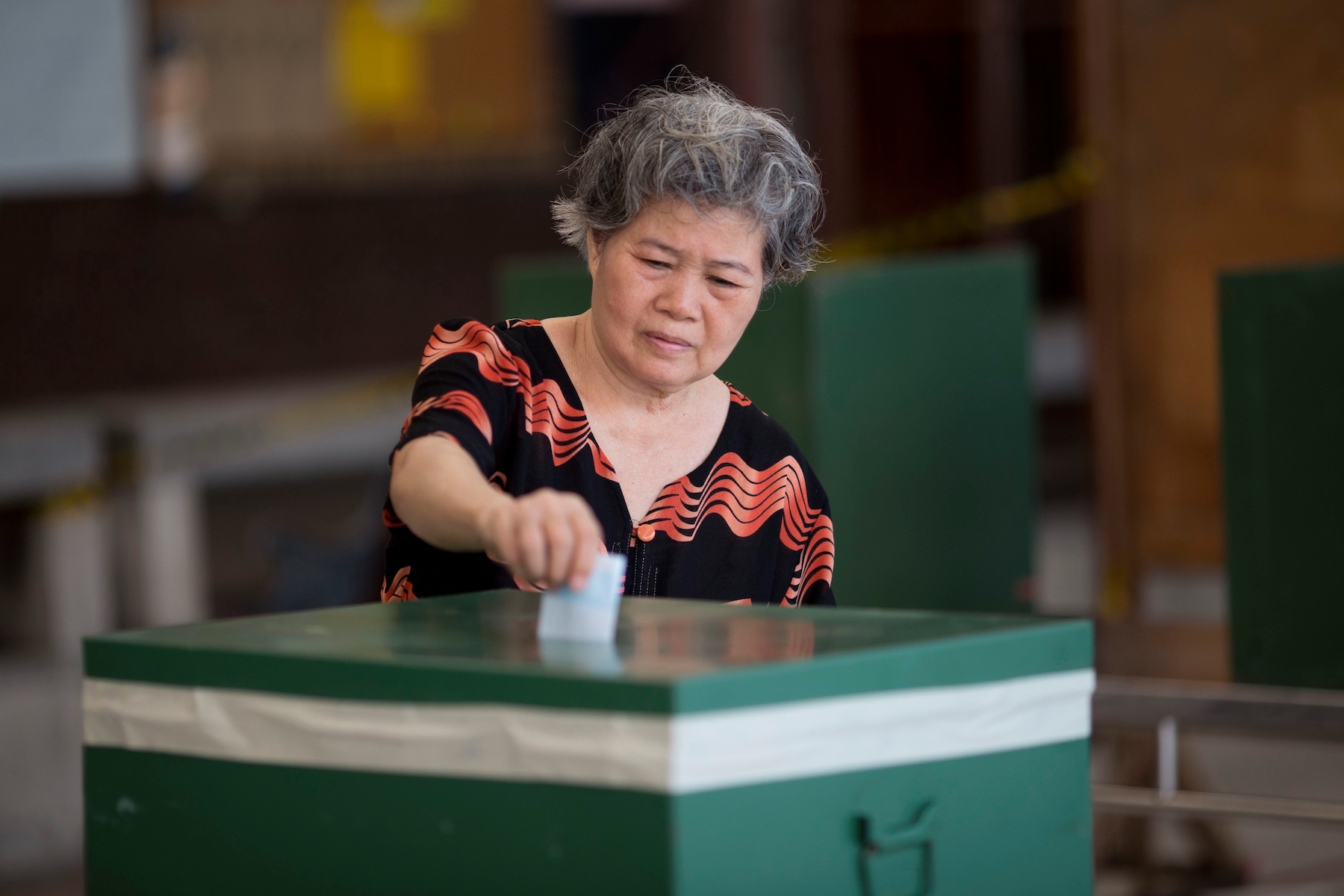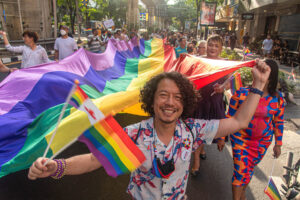When relocating to a new country, it’s vital to understand the rights guaranteed to you as a resident. Thai law includes human and civil rights such as freedom of speech and access to social welfare benefits, including healthcare and maternity leave.
While Thailand has made progress in terms of human rights, there is still work to be done in the areas of equality for vulnerable groups, freedom of speech, the right to assemble and protest, and political fairness.
Find out more by reading about the following:
- Overview of human rights in Thailand
- What civil rights do you have in Thailand?
- What political rights do you have in Thailand?
- Thai social and cultural rights
- What rights does Thailand give to workers?
- Women’s rights in Thailand
- What rights does the LGBTQ+ community have in Thailand?
- Rights for people with disabilities in Thailand
- Anti-racism and anti-discrimination legislation in Thailand
- Does Thailand protect migrants and refugees?
- What can you do if your human rights are violated in Thailand?
- Thai human rights organizations
- Useful resources
Ground News
Get every side of the story with Ground News, the biggest source for breaking news around the world. This news aggregator lets you compare reporting on the same stories. Use data-driven media bias ratings to uncover political leanings and get the full picture. Stay informed on stories that matter with Ground News.
Overview of human rights in Thailand
Modern human rights (สิทธิมนุษยชน) in Thailand can be traced back to the 1932 Siamese Revolution (การปฏิวัติสยาม). After becoming a sovereign nation, the country’s first constitution (รัฐธรรมนูญ) enshrined several key rights of its citizens. Thailand was also one of the original signatories of the 1948 Universal Declaration of Human Rights.
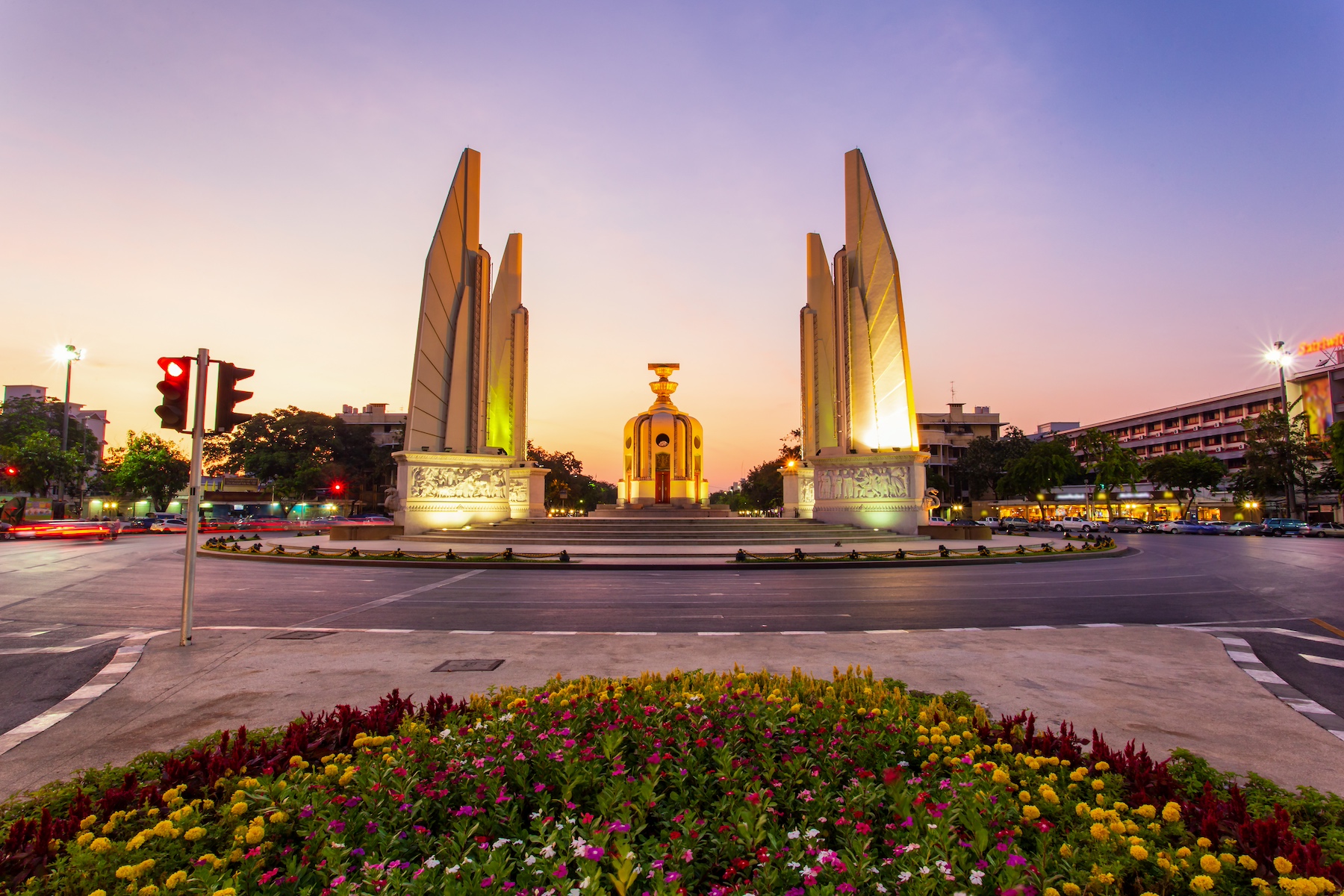
However, Thailand’s human rights record over the past few decades has fallen short of its prior agreements. The Thai government and law enforcement agencies have drawn repeated criticism from Amnesty International and Human Rights Watch (HRW). Alleged human rights abuses include civil rights restrictions, torture, and discrimination against migrant groups.
Thailand restored a democratic government in 2019 after five years of military rule. However, the government has been accused of using powers installed during the COVID-19 emergency decree in 2020 to suppress peaceful protests. In 2022, Thailand’s foreign minister announced that the country would stand for election to the UN Human Rights Council 2025–2027, and there have been calls for the government to address any suspected violations ahead of this.
What policies are in place to protect human rights in Thailand?
Thailand’s most recent constitution lays out the fundamental rights of citizens, including civil, political, social, cultural, consumer, and community rights. It also details the separation of powers within the state: executive (government), legislative (parliament), and judiciary (courts).
The government agencies responsible for protecting human rights in Thailand, and therefore accountable for any related abuses, are:
- Ministry of Justice (กระทรวงยุติธรรม) – responsible for the legal system in Thailand
- Office of the Prime Minister (สำนักงานนายกรัฐมนตรี) – in charge of the Royal Thai Police (สำนักงานตำรวจแห่งชาติ)
- Ministry of Defense (กระทรวงกลาโหม) – responsible for the Royal Thai Armed Forces (กองบัญชาการทหารไทย)
Thailand established an independent National Human Rights Commission (NHRC – คณะกรรมการสิทธิมนุษยชนแห่งชาติ) in 2001. This body, comprised of seven appointed members, serves to improve human rights in Thailand and hold the state and others accountable. According to the commission’s 2022 report, it received 1,149 complaints of human rights violations in the previous year.
Both Amnesty International and HRW have criticized Thailand for human rights violations that breach its national and international obligations. Alleged abuses include:
- Mass arrest and use of live ammunition during peaceful protests
- Evidence of torturing prisoners by police officers
- Restrictions to freedom of expression and the internet
- Military violence against ethnic Malays in southern border provinces
- Unlawful detention of refugees fleeing Myanmar
Which global human rights treaties has Thailand signed?
Thailand has signed several UN human rights treaties, including:
- Convention Against Torture
- International Covenant on Civil and Political Rights
- Convention on the Elimination of All Forms of Discrimination Against Women
- International Convention on the Elimination of All Forms of Racial Discrimination
- Convention on the Rights of the Child
- Convention on the Rights of Persons with Disabilities
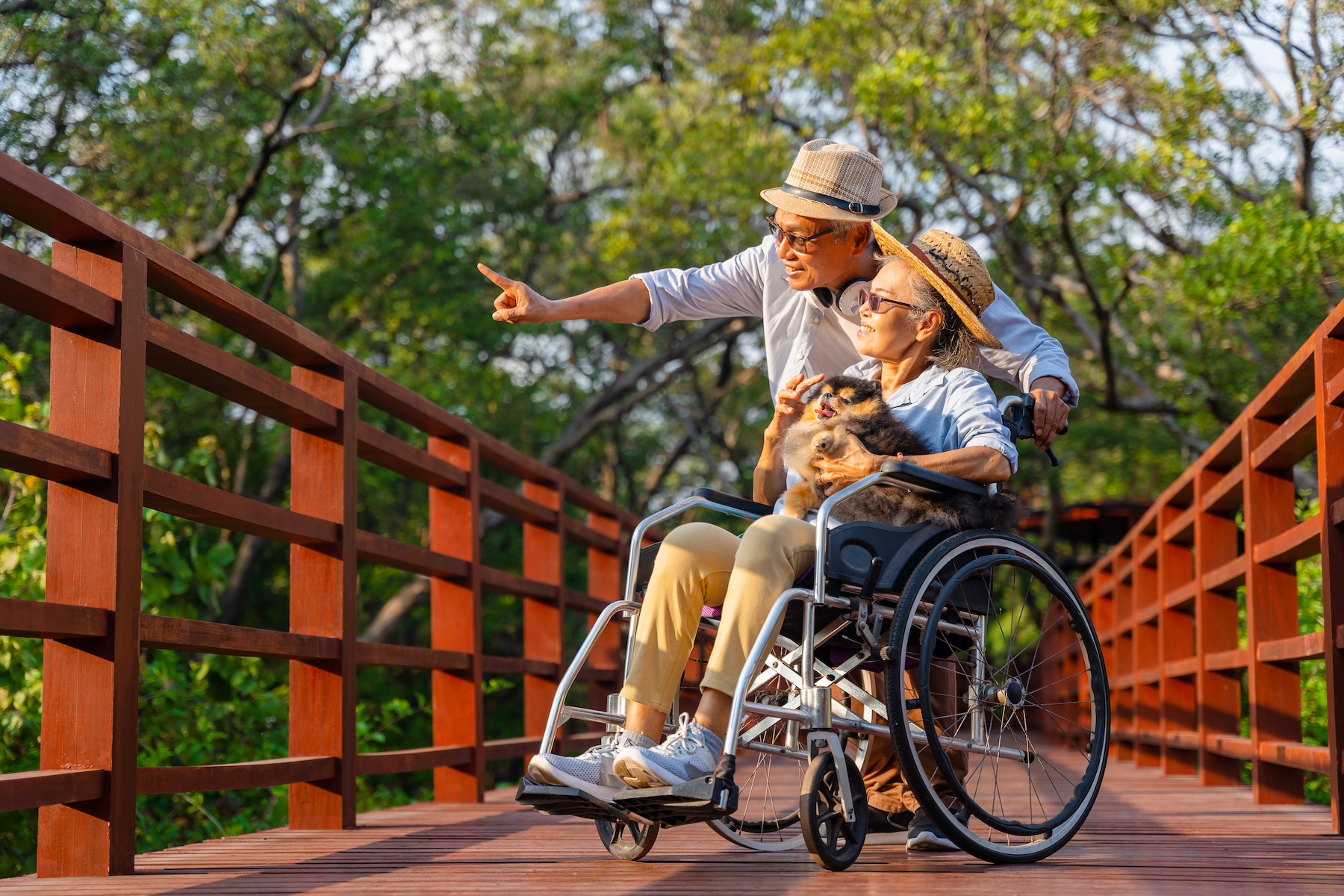
However, Thailand has yet to sign the 1951 Refugee Convention. The UN has raised human rights concerns in its recent periodical reviews of Thailand related to racism, discrimination against women, and evidence of torture. The UN recently signed an agreement with the European Union (EU) to work together to promote and protect human rights in Thailand.
How does Thailand rank on human rights ratings?
Thailand’s ranking on global human rights reviews indicates a complicated current state of affairs. It generally ranks mid- to low-range, with studies highlighting similar problems and areas of improvement.
Current rankings and ratings include:
- 104th of 165 countries on the 2022 Cato Institute Human Freedom Index (HFI) – highest scores for financial and religious freedom, lowest scores for freedom of assembly and judicial freedom
- 55th of 167 nations on the 2022 Economist Intelligence Unit (EIU) Democracy Index – although Thailand was marked out for being the most improved country in 2022
- 101st of 178 countries on the 2022 Transparency International Corruption Perceptions Index
- 29 points of 100 (rated “not free”) on Freedom in the World 2022 – serious problems identified with political rights, electoral process, and civil freedoms
What civil rights do you have in Thailand?
The 2017 Constitution of Thailand guarantees certain inalienable rights of its citizens. Constitutional rights include:
- Freedom from unfair arrest and torture
- Right to a fair trial
- Freedom from forced labor
- Freedom of religion
- Right to a family life
- Freedom of speech and expression
- Freedom of movement
- Freedom of association and assembly
However, there are also some clauses stating that rights can be restricted in certain circumstances to preserve public order. The constitution also only guarantees rights for Thai people and doesn’t explicitly cover non-citizen residents. This means that Thai authorities can sometimes restrict rights while claiming not to conflict with the constitution.
Below is a more detailed analysis of how Thailand performs in some of the key civil rights areas.
Freedom of speech and expression
Despite freedom of speech being guaranteed by Thailand’s constitution, the government has recently made moves to restrict it. This includes using the emergency public measures introduced during the COVID-19 pandemic to inhibit free speech and clamp down on dissenting voices.
Thailand scores only 4.2 out of 10 for freedom of expression on the HFI and only 6 out of 16 on the latest Freedom House report. There has been no repeal of the lèse-majesté laws outlawing criticism of the Thai monarchy.
Amnesty International reports that 1,860 residents have or are facing criminal proceedings for criticizing the government between 2020 and 2022, including nine activists detained without trial. There have also been incidents of violence against human rights campaigners where the state is believed to be complicit.
Regarding press freedom, Thailand is down 106th out of 180 countries on the 2022 Reporters Without Borders World Press Freedom Index. The threat of defamation laws such as lèse-majesté has led to self-censorship. Meanwhile, the government exerts excessive control over content and frequently uses mainstream media for propaganda. The situation is very similar regarding academic freedom, with university content heavily monitored and controlled.
Thailand scores just 39 out of 100 on the 2022 Freedom on the Net report. There is much evidence of the government controlling online content and removing anything it deems inappropriate. Authorities blocked over 4,700 websites between January and September 2022.
Freedom of assembly and association
Evidence shows the government continuing to use emergency powers to restrict the right to protest. According to Amnesty International, 1,468 protesters, including 241 children, have faced criminal charges for peaceful protests since May 2020. Furthermore, there have been incidents of law enforcement authorities attacking, beating, and even using live ammunition against protesters.
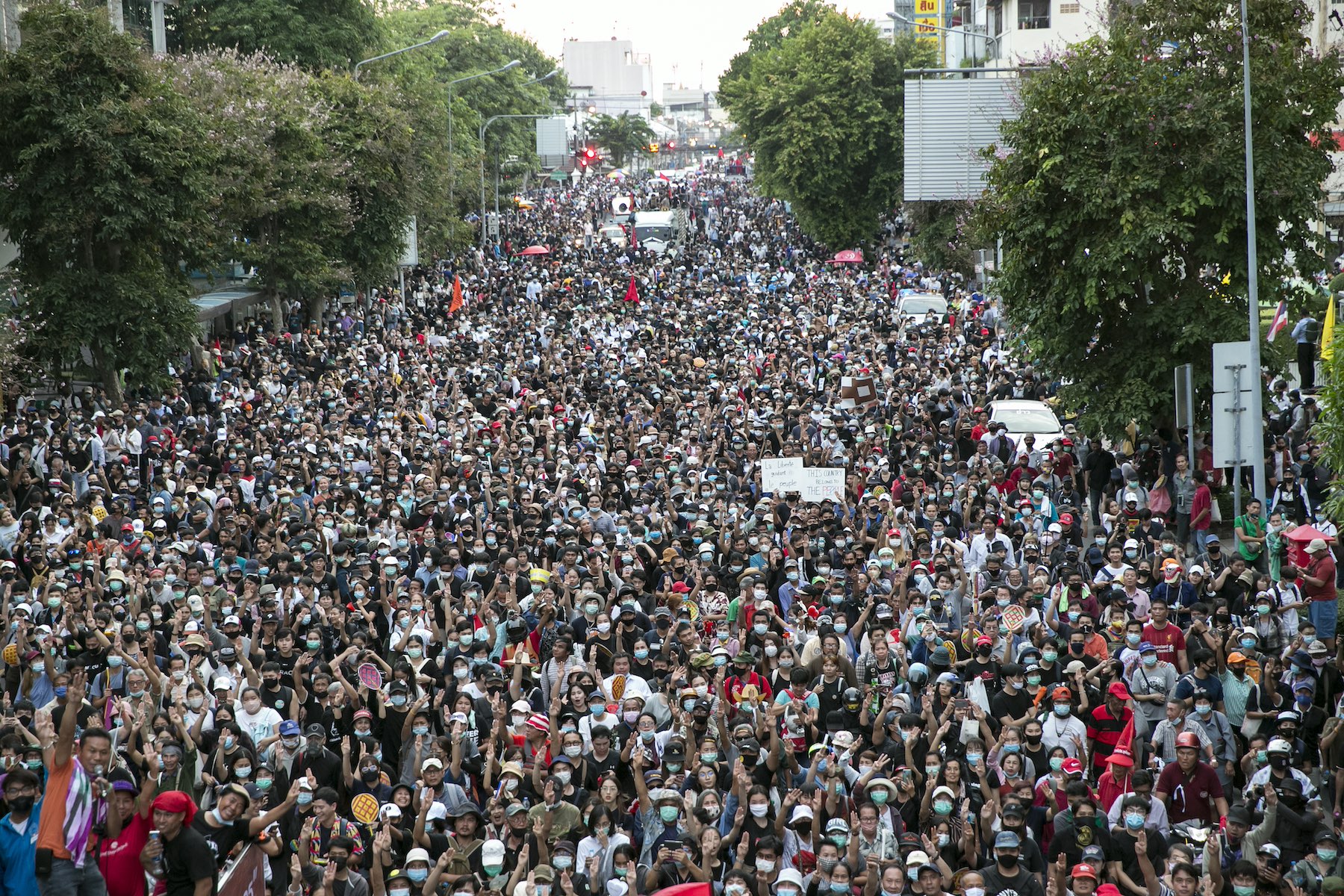
Thailand’s government has also targeted human rights non-profit organizations, drafting laws to restrict funding and activities of any group it deems to be against public interest or national security.
Freedom House scores Thailand 3 points out of 12 for the civil rights of protesters, trade unions, and NGOs. It reports on the targeting of union leaders, attacks on environmental activists, and employers engaging in anti-union activities. Thailand scores similarly poorly for freedom of assembly on the HFI, with 4.1 out of 10.
Judicial freedom and the right to a fair trial
Thailand’s constitution includes the right to a fair trial and protection against unfair arrest. Laws are based on the country’s penal code, and the accused is innocent until proven guilty. If you are arrested, the police can detain you without charge for up to 48 hours. Detention without trial periods vary depending on the seriousness of the charges, but the current maximum for offenses carrying a punishment over 10 years is 84 days.
Reviews of Thailand’s justice system have found areas of serious concern. Since the 2014 junta (รัฐบาลทหารที่เข้ามาบริหารประเทศ), authorities have used the lèse-majesté law (section 112 of the Penal Code prohibiting defamation of the Royal Family) to detain pro-democracy activists for excessive periods of time. Both Amnesty International and HRW have documented the use of torture in custody by security forces, illegal under Thai law, leading to the deaths of some prisoners.
Thailand has an HFI score of 4.1 out of 10 for rule of law, and Freedom House scores it 5 points out of 16. This highlights problems such as government control and interference in the judiciary, lack of due process, and repeated illegal use of force by authorities.
Thailand is one of 55 countries worldwide that still have the death penalty, although this is slowly being phased out. There are currently over 500 people on death row in Thailand. The last execution was carried out in 2018.
The right to privacy
Privacy is a constitutional right in Thailand. However, the 2022 Freedom on the Net report finds that state surveillance of internet activity and monitoring/collection of data by technology companies compromise this.
The 2019 Personal Data Protection Act (PDPA – พระราชบัญญัติคุ้มครองข้อมูลส่วนบุคคล) outlines data protection rights in Thailand. According to the report, these rights are infringed upon by the Computer Crime Act (พ.ร.บ.คอมพิวเตอร์ฯ), which gives government agencies the power to access data without a court order, and the 2019 National Intelligence Act (พระราชบัญญัติข่าวกรองแห่งชาติ พ.ศ. 2562), which authorizes access to information impacting “national security.”
What political rights do you have in Thailand?
Thailand reintroduced its democratic process in 2019 after five years of military rule, holding elections that year. Only citizens 18 and above who are enrolled in the household register can vote. Expats can only vote if they become Thai citizens but must have been naturalized for at least five years.
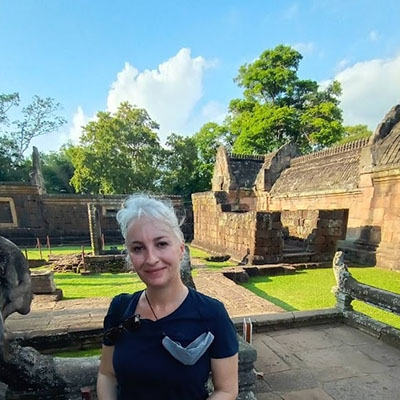
Local expert
Jane Evans
Expats are prohibited from involvement in Thai political campaigns and are strongly advised to refrain from political activity, which can result in the cancelation of visas and deportation.
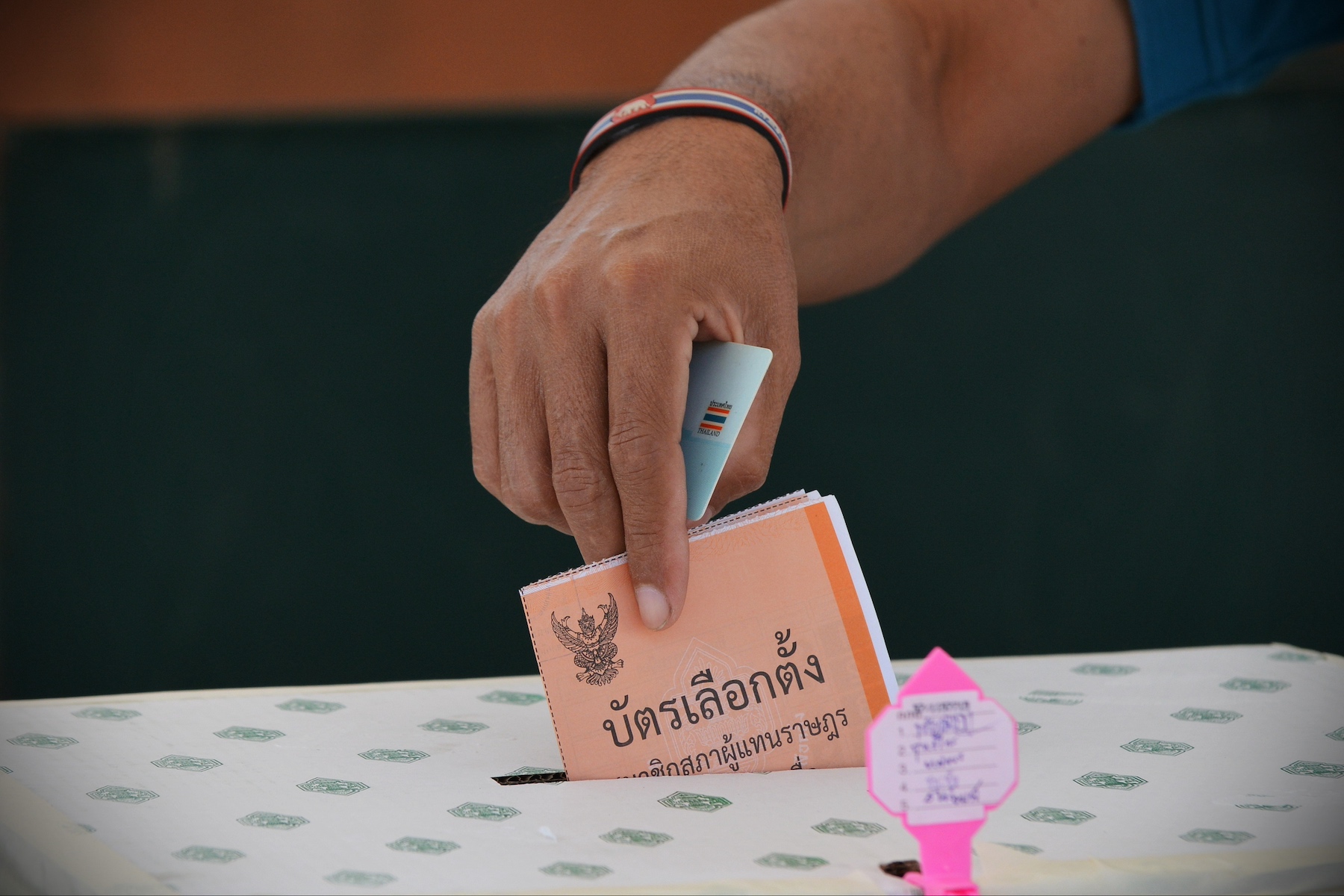
Only Thai citizens can run for public office. Thailand is a constitutional monarchy with the ruling monarch (พระมหากษัตริย์) as head of state, the prime minister (นายกรัฐมนตรี) as head of government, and parliament (รัฐสภา) consisting of an elected House of Representatives and an appointed Senate. You must be at least 25 to run for parliament and at least 40 to be appointed as a senator.
Thailand rates as a flawed democracy on the 2022 Democracy Index. Although it holds elections, these aren’t entirely free or fair. Freedom House scores Thailand only 5 points out of 40 for political rights, noting issues with the electoral process, political pluralism, participation, and the functioning of government. Both the king and the military are accused of interfering with political processes, and monitoring organizations have been restricted from accessing polling during elections.
Although the ban on political parties was lifted at the end of junta rule, many political organizations and their members have experienced harassment. Groups such as Malay Muslims in the south are politically marginalized, and women are underrepresented in parliament.
Thai social and cultural rights
If you are a Thai citizen or work in Thailand, you can expect a certain level of social and cultural rights. The constitution guarantees healthcare, education, and maternity rights for citizens. In addition, everyone has the right to practice their religion or cultural activities as long as they remain within the law.

Local expert
Jane Evans
Most Thai citizens are Theravada Buddhists, but it’s good to know that they are also very accepting and tolerant of other religions.
Thailand is a signatory of the UN International Covenant on Economic, Social, and Cultural Rights. The 2015 Social Security Act states that every working person who makes minimum contributions, whether citizen or foreign resident, can access the following social security benefits:
- Unemployment benefit
- Injury or sickness benefit
- Maternity benefits
- Disability benefits
- Survivor benefits
- Child benefits
- Old-age pensions
Citizens unable to contribute to the system can access public healthcare through the country’s universal coverage system. Expats will generally get coverage through employer health insurance schemes. There are social assistance schemes to help those on the lowest incomes; however, these are only available to Thai nationals.
A 2021 report on economic and social human rights in Thailand highlighted inequalities in education and healthcare in Thailand, with certain sections of the population unable to fully realize their rights.
What rights does Thailand give to workers?
All Thai citizens have an automatic right to seek and enter into employment. Foreign residents, on the other hand, will usually need a work visa and work permit.

The 1998 Labor Protection Act (พระราชบัญญัติคุ้มครองแรงงาน พ.ศ. 2541) and the Civil and Commercial Code (ประมวลกฎหมายแพ่งและพาณิชย์) detail Thai labor law. Contracted workers are entitled to annual leave, sick leave, and maternity leave. Allowances depend on the length of service. Typically, you will get at least six days of annual leave for one year of service.
Additionally, workers get 13 public holidays each year. Maximum working hours are eight hours per day and 48 hours per week, with anything above considered overtime. The Thai constitution prohibits forced labor.
Employment contracts include notice periods. Lengths vary but are usually between 1–3 months. Employers are also liable for severance pay if employees have served minimum periods. Minimum wage varies across the country.
The constitution also permits workers to join unions. In 2022, the government canceled prohibitions on strikes and lockouts that had been in place since the start of COVID-19.
Women’s rights in Thailand
Much progress has been made regarding women’s rights in Thailand, though gender equality remains some way off. The Constitution states that men and women are equal citizens entitled to equal rights. Thailand has also signed the UN Convention on the Elimination of All Forms of Discrimination Against Women and passed its own Gender Equality Act (พระราชบัญญัติความเท่าเทียมระหว่างเพศ พ.ศ. 2558) in 2015.
Regarding actual performance, Thailand outperforms its Southeast Asian neighbors in many economic aspects, such as the percentage of female senior managers or women working in STEM fields. However, it still lags elsewhere, particularly politically.
Thailand ranks 79th out of 146 nations on the World Economic Forum (WEF) 2022 Global Gender Gap Report and is 122nd out of 186 countries for women in parliament as of July 2023. Only 19.2% of the country’s lower house representatives and 10.4% of its upper house senators are women.
According to UN data, women in Thailand are still nearly three times more likely to be responsible for unpaid domestic and care work. Also, women in rural areas are far more exposed to poverty, discrimination, and exploitation than their male counterparts.
What rights does the LGBTQ+ community have in Thailand?
Thailand offers some rights to LGBTQ+ people, but these are limited.
Same-sex sexual activity is legal, there is an equal age of consent, and acts such as the Gender Equality Act include sexual orientation and gender identity in its anti-discrimination protections. However, the Constitution omits sexuality and gender identity in its section 27 on unjust discrimination.

Same-sex marriage and adoption have been legal in Thailand since September 2024.
However, there are still some gender inequalities. For example, LGBT+ individuals cannot give blood. There is also no official recognition of the non-binary identity, and Thailand doesn’t allow gender changes on many official forms of ID.
Equaldex ranks Thailand 44th out of 197 countries for LGBTQ+ rights, with a score of 65 out of 100.
Rights for people with disabilities in Thailand
In addition to including disability under Section 27 of the Thai Constitution and signing the UN Convention on the Rights of Persons with Disabilities, Thailand has passed the following legislation:
- 2007 Persons With Disabilities Empowerment Act (พระราชบัญญัติส่งเสริมศักยภาพคนพิการ พ.ศ. 2550)
- 2008 Persons With Disabilities Education Act (พระราชบัญญัติการศึกษาคนพิการ พ.ศ. 2551)
These acts introduced anti-discrimination measures, along with making public spaces more user-friendly, improving mainstream education, and introducing employment quotas of at least one employee with a disability per 100 staff in large organizations. According to recent statistics, 24% of working-age people with disabilities living in Thailand are employed.
Following the 2007 Act, the government also introduced a monthly disability living allowance.
In a 2016 review of disability legislation, the UN praised Thailand for its progress but highlighted several areas for improvement, including tightening anti-discrimination rules. The UN has also noted that, while legislation has been introduced, there has been “limited implementation and lack of compliance.”
Around 4% of children with disabilities don’t receive formal schooling. Children in Thailand can be taught in mainstream or specialist schools, although many parents feel that teachers in mainstream schools don’t receive enough disability training.
Anti-racism and anti-discrimination legislation in Thailand
The Thai Constitution prohibits discrimination on the grounds of “origin, race, language, sex, age, disability, physical or health condition, personal status, economic and social standing, religious belief, education, or political view which is not contrary to the provisions of the Constitution.”
Furthermore, Thailand does not have dedicated laws addressing racism and racial discrimination, even though marginalized communities, like Malay Muslims and the indigenous Karen tribes, frequently encounter discriminatory practices. This includes government actions like racial profiling and DNA collection targeting minority groups.
Following discussions with the UN and in response to the periodic review on eliminating racial discrimination, the Ministry of Justice is working on a draft Act on Protection and Promotion of the Way of Life of Ethnic Groups.
Does Thailand protect migrants and refugees?
The Constitution of Thailand doesn’t explicitly refer to migrant groups.
Its provisions cover Thai people and state that discrimination against people based on their origin is illegal. Non-citizens don’t have voting rights and are excluded from many welfare rights unless they make sufficient contributions. Migrant workers cannot form unions or become union leaders in Thailand.
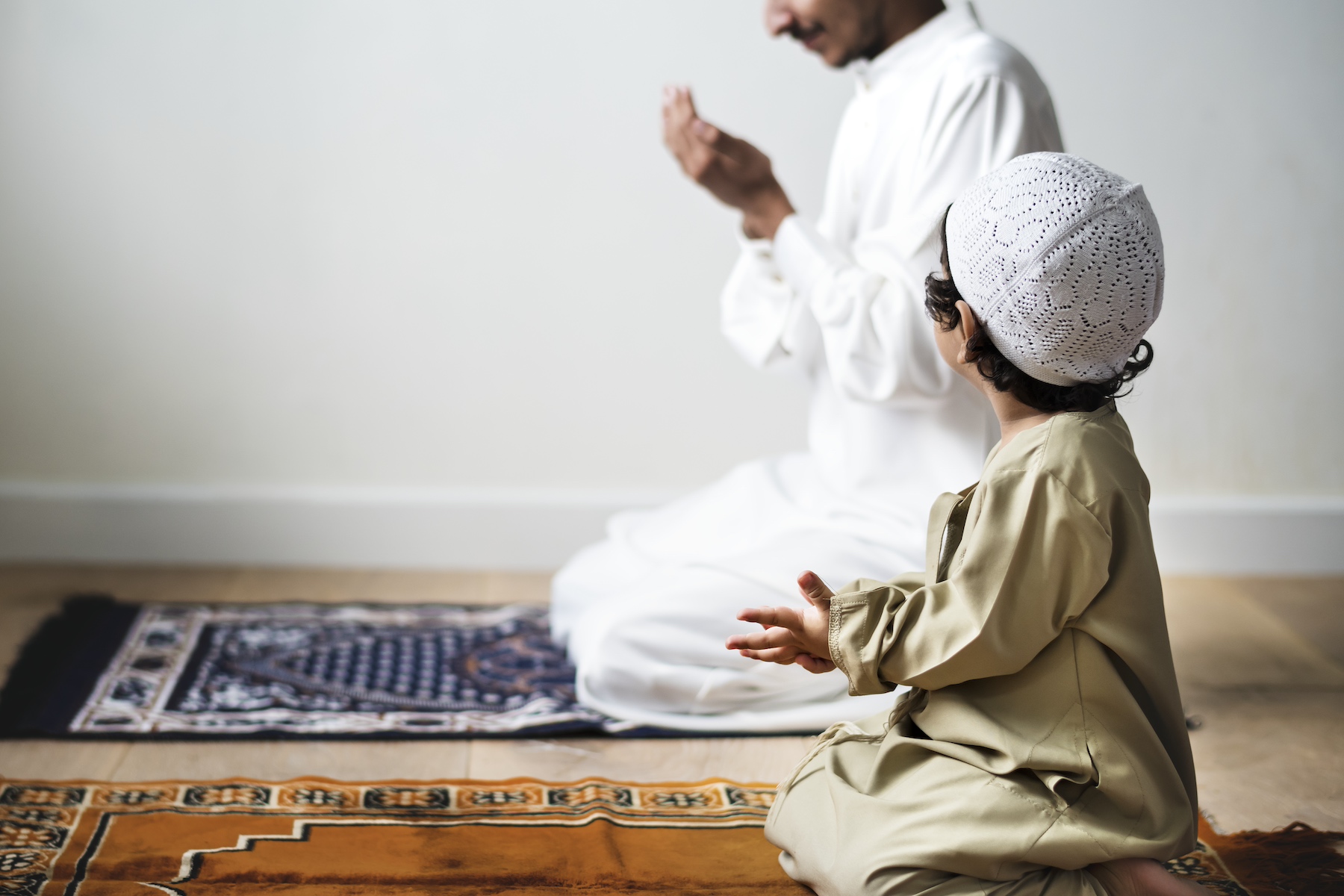
Since Thailand hasn’t signed the 1951 UN Convention on Refugees, asylum-seekers and refugees in Thailand have fewer rights than in other countries. There is no official asylum policy in place, and according to the 1979 Immigration Act (พระราชบัญญัติคนเข้าเมือง พ.ศ. 2522), refugees have the same legal status as illegal immigrants. The UN Refugee Agency (UNHCR), assisted by Asylum Access Thailand, handles the process by which refugees obtain asylum in the country.
Thailand is home to over 90,000 refugees from Myanmar who live in shelters on the Thai-Myanmar border. There are also around 5,000 refugees from approximately 40 nations, plus 480,000 stateless people in Thailand. The Thai government has come under criticism from human rights NGOs for holding asylum-seekers in detention centers.
Although migrant employees in Thailand generally have the same rights as nationals, approximately 25% of the country’s migrant workforce has irregular status, meaning they have no formal rights. Freedom House recognizes the continued economic exploitation of the informal workforce, including evidence of child sweatshop labor and sex trafficking.
What can you do if your human rights are violated in Thailand?
If you want to complain about human rights abuses in Thailand, you can contact the NHRC using its online system. The NHRC will assess the complaint and can offer the following forms of remediation if it identifies a human rights abuse:
- Individual cases – NHRC contacts the perpetrator and requests remedial action within 60 days
- Criminal offense cases – NHRC can assist in bringing criminal charges against the perpetrator
- Urgent cases – if the life or security of the complainant is deemed to be in danger, the NHRC can involve the relevant authorities to assist with the case
- Serious human rights violations – NHRC will prepare a report to submit to the National Assembly and Council of Ministers
- Alternative dispute resolution – mediation role to settle minor complaints
If you are dissatisfied with the outcome of your complaint to the NHRC, you can escalate the complaint to the UN through the Office of the High Commissioner on Human Rights (OHCHR).
Thai human rights organizations
Human rights organizations operating in Thailand include:
Useful resources
- 2017 Constitution of Thailand – outlines fundamental human rights for citizens
- National Human Rights Commission (NHRC) – independent human rights body in Thailand
- Office for the High Commissioner on Human Rights (OHCHR) – section on Thailand’s international human rights record
- Amnesty International Thailand – national branch of Amnesty
- Human Rights Watch Thailand – the national branch of HRW
